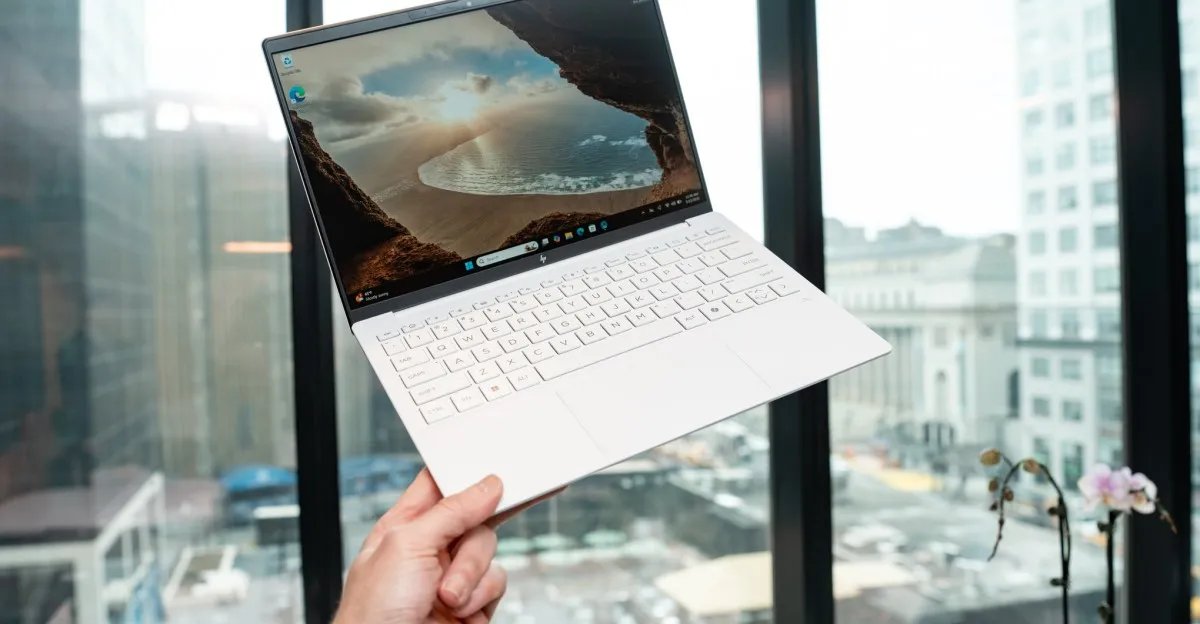
HP is set to invigorate the consumer laptop market with an impressive lineup of 18 new OmniBook models and refreshes. These laptops encompass a range of sizes and form factors, categorized into the OmniBook 3, 5, 7, and the premium X series. Among these offerings are innovative foldable two-in-ones equipped with stylus support, catering to the diverse needs of today's users.
When it comes to processing power, the new HP OmniBooks feature a variety of AMD and Intel CPUs, including models that utilize Strix Point and Lunar Lake technologies. While specific pricing details are still under wraps, the early preview of the new models showcased a compelling array of choices for consumers looking for productivity-focused laptops.
One standout model from the lineup is the HP OmniBook 7 Aero, a remarkably lightweight 13.3-inch laptop weighing just 2.2 pounds. This makes it half a pound lighter than the 13-inch MacBook Air and comparable to the ultra-light Asus Zenbook A14 showcased at CES. Unlike the Snapdragon X-equipped Zenbook, the OmniBook 7 Aero offers configuration options up to an AMD Ryzen AI 7 350 (Krackan Point) chip, with storage capacities reaching 1TB SSD and up to 32GB of RAM.
The OmniBook 7 Aero boasts an impressive array of ports for its compact size, including two USB-C ports (10Gbps) with Power Delivery and DisplayPort 2.1, one 10Gbps USB-A port, a slower 5Gbps USB-A port, a 3.5mm audio jack, and an HDMI 2.1 output. Its 13.3-inch display is available in IPS panel configurations, offering brightness levels of 400 nits and resolutions of either 1920 x 1200 or 2560 x 1600, ensuring a crisp and vibrant visual experience.
Powering the OmniBook 7 Aero is a 43Wh battery, which may seem modest compared to the 70Wh battery found in the Zenbook A14 and the 52.6Wh cell in the MacBook Air. However, the extensive port selection could lead to some trade-offs in battery performance. The laptop features a chiclet-style keyboard with sizable keycaps, making for a comfortable typing experience.
Interestingly, HP is experimenting with lattice-less keyboard designs in some of its other OmniBooks. This design reduces the gaps between keys, a trend seen in models like the Dell XPS 13. While some users may prefer the traditional keyboard feel, HP's approach aims to provide larger keycaps for improved usability. Feedback from EliteBook users has been positive, indicating that this design could become a staple in future models.
In addition to the OmniBook lineup, HP is also refreshing its EliteBook series, introducing updates to 20 of its commercial and enterprise-focused laptops in the EliteBook 6 and 8 series. Notably, the EliteBook 8 now supports on-device local AI capabilities when configured with 32GB of RAM or more. This feature allows for low-latency tasks and enhanced privacy while also enabling users to leverage cloud-based models for more complex needs.
The HP OmniBook 7 Aero and the refreshed EliteBooks underscore HP's commitment to innovation and performance in the laptop market. With a stronger focus on AI integration and user-friendly designs, these new models are poised to attract a wide range of consumers. As we await official pricing information, the buzz around HP's latest offerings continues to grow.